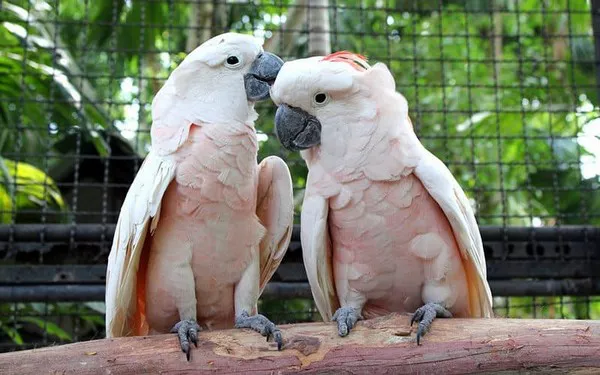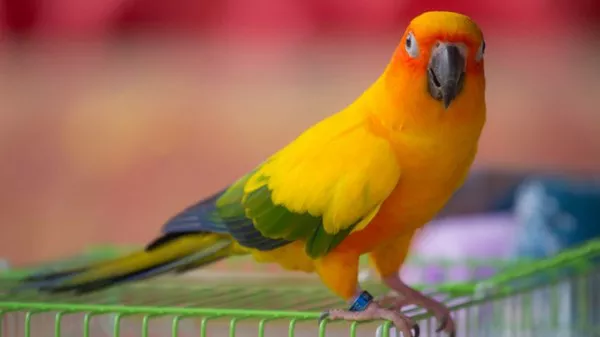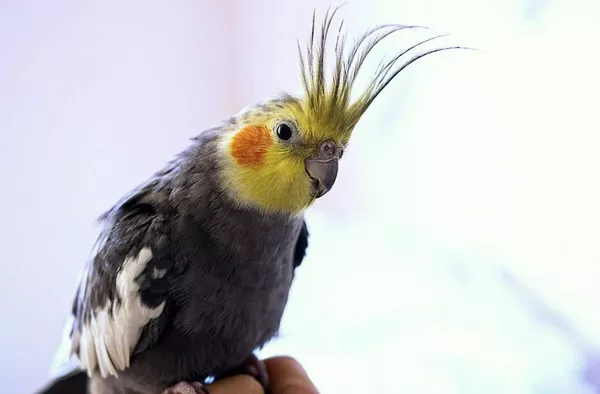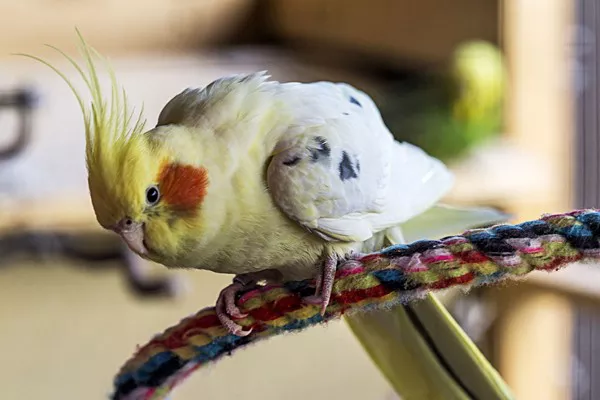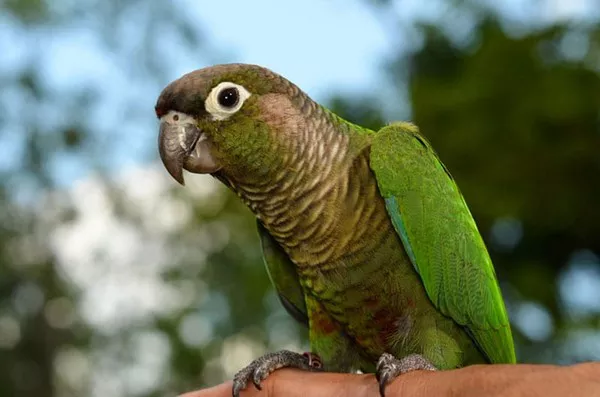Sun conures, with their striking colors and friendly personalities, are one of the most popular pet birds in the world. These birds, scientifically known as Aratinga solstitialis, belong to the parrot family and are native to South America. They are particularly known for their bright yellow, orange, and green plumage, which makes them look like little rays of sunshine, hence the name “sun conure.”
While many people are familiar with the standard sun conure, there are several different types or variations of sun conures that pet enthusiasts and breeders have developed over the years. These types can vary in terms of color, size, and personality traits, but all share the same general care requirements. This article will explore the different types of sun conures, their characteristics, and what you need to know about owning one of these charming parrots.
1. Standard Sun Conure
The standard sun conure is what most people picture when they think of this species. These birds are primarily a combination of bright yellow and orange feathers, with a touch of green on the wings and tail. Their faces are often covered in bright yellow or golden feathers, giving them a radiant, “sunny” appearance.
Physical Characteristics:
Size: Around 12 inches (30 cm) long, with a wingspan of about 18 inches (46 cm).
Color: The body is mostly yellow and orange, while the wings and tail feature shades of green and blue.
Behavior: Sun conures are known for being highly social, affectionate, and energetic. They often seek attention from their owners and enjoy playing, climbing, and exploring.
Temperament: Standard sun conures are loud and vocal, often calling out with high-pitched squawks. While this can be a drawback for people living in apartments or small spaces, their lively personalities and ability to bond deeply with their owners make them wonderful companions. They require plenty of mental stimulation and daily interaction to keep them happy.
Care Tips:
- Sun conures need a spacious cage with plenty of toys and climbing opportunities.
- They should have at least 1-2 hours of out-of-cage time each day.
- A healthy diet consisting of fruits, vegetables, pellets, and seeds is essential.
- Sun conures enjoy bathing, so providing a shallow dish of water or a misting bottle will help them stay clean and happy.
2. Green Cheek Sun Conure (Fischeri Variant)
The green cheek sun conure, sometimes referred to as the Fischeri variant, is a slightly smaller and more subdued version of the standard sun conure. These birds have a similar color pattern but with additional green feathers on their backs and wings. This variation is particularly sought after by breeders due to its unique look and slightly calmer temperament.
Physical Characteristics:
Size: Around 10 inches (25 cm) long, making them a little smaller than the standard sun conure.
Color: The feathers are mainly yellow and orange, with more noticeable green feathers on the back, wings, and tail.
Behavior: The green cheek sun conure is slightly quieter than the standard sun conure, but still highly social. They enjoy playing with their owners and other pets, and they are known for being affectionate.
Temperament: Green cheek sun conures are playful but not as loud as their larger counterparts. This makes them a good option for people who live in apartments or quieter homes. However, they still require a lot of attention and mental stimulation, as they can become bored or anxious without enough interaction.
Care Tips:
- A large cage with lots of toys is important for keeping them engaged.
- Green cheek sun conures also need a variety of food items, including fresh fruits, vegetables, and high-quality pellets.
- While they may not be as loud, they still benefit from regular playtime outside of their cage.
- Like all conures, these birds need attention and affection to prevent behavioral problems.
3. Jenday Sun Conure
The Jenday sun conure is a striking variation of the sun conure, with even more pronounced yellow and orange plumage. This bird’s bold color palette makes it one of the most visually stunning types of sun conure.
Physical Characteristics:
Size: Similar to the standard sun conure, measuring about 12 inches (30 cm) in length.
Color: This variety is known for its deep orange and yellow feathers, which cover most of the body, with green highlights on the wings and tail.
Behavior: Jenday sun conures are highly active and social, often seeking attention and interaction from their owners. They are also known for their playful and curious nature.
Temperament: Jenday sun conures are very outgoing and may become clingy with their owners. They love being the center of attention and will not hesitate to demand it. These birds are also quite vocal, so their high-pitched calls can be a challenge in certain living environments.
Care Tips:
- Jenday sun conures need plenty of exercise, so providing a large cage and out-of-cage time is important.
- They thrive on a varied diet, including fruits, vegetables, and high-quality pellets.
- Regular social interaction is essential to prevent boredom and negative behaviors.
- Jendays, like all sun conures, love to bathe, so ensure they have access to water for bathing.
4. Yellow-Sided Sun Conure
The yellow-sided sun conure is a beautiful mutation of the standard sun conure, featuring additional yellow and orange feathers on the sides of the body. This bird has a more muted overall color scheme compared to the traditional sun conure, but it is still visually striking.
Physical Characteristics:
Size: Around 12 inches (30 cm) long, similar to the standard sun conure.
Color: The yellow-sided sun conure has a yellow and orange body with green on the wings and tail. The key feature of this variation is the yellow-orange feathers on the sides of the bird’s body, which give it a more vibrant appearance.
Behavior: Yellow-sided sun conures are highly social and enjoy spending time with their human companions. They are known to be playful and energetic but can also enjoy quiet time resting on their owner’s shoulder or lap.
Temperament: Yellow-sided sun conures are friendly and affectionate, just like other sun conures. However, they can be a bit more reserved, especially with strangers. They form strong bonds with their owners and will often seek physical affection and closeness.
Care Tips:
- These birds are active and need ample space and toys to stay entertained.
- A well-rounded diet of fresh fruits, vegetables, seeds, and pellets will keep them healthy.
- Like all sun conures, yellow-sided sun conures need regular social interaction to prevent boredom and stress.
5. Cinnamon Sun Conure
The cinnamon sun conure is a more rare and unique variation of the sun conure. These birds have a more subdued coloration than the standard sun conure, with a softer, brownish tint to the feathers.
Physical Characteristics:
Size: Similar to the standard sun conure, at approximately 12 inches (30 cm) in length.
Color: Cinnamon sun conures have a more neutral color palette, with the yellow and orange feathers being softened by a cinnamon-brown hue. This gives them a more earthy, muted appearance compared to their brighter counterparts.
Behavior: Cinnamon sun conures are known to be playful and loving, much like other sun conures. They are also slightly quieter than the standard sun conure but still vocal.
Temperament: This variation tends to be a bit calmer than the standard sun conure. They are still very social birds, and they form strong bonds with their owners. However, their mellow temperament can make them a good choice for those who want a sun conure without the louder squawks.
Care Tips:
- Like other sun conures, cinnamon sun conures require daily interaction and mental stimulation.
- They need a spacious cage with climbing opportunities and a variety of toys.
- A healthy diet of fruits, vegetables, seeds, and pellets is essential for their well-being.
Conclusion
Sun conures come in a variety of beautiful and unique types, each with its own distinct color patterns and personality traits. From the vibrant standard sun conure to the calmer cinnamon variation, these birds are sure to captivate anyone who sees them. No matter which type of sun conure you choose, it’s important to provide them with proper care, including a spacious cage, a balanced diet, and plenty of social interaction. With their playful personalities and stunning colors, sun conures make wonderful pets for those who are ready to invest time and love into these intelligent and affectionate birds.
Related Topics:

